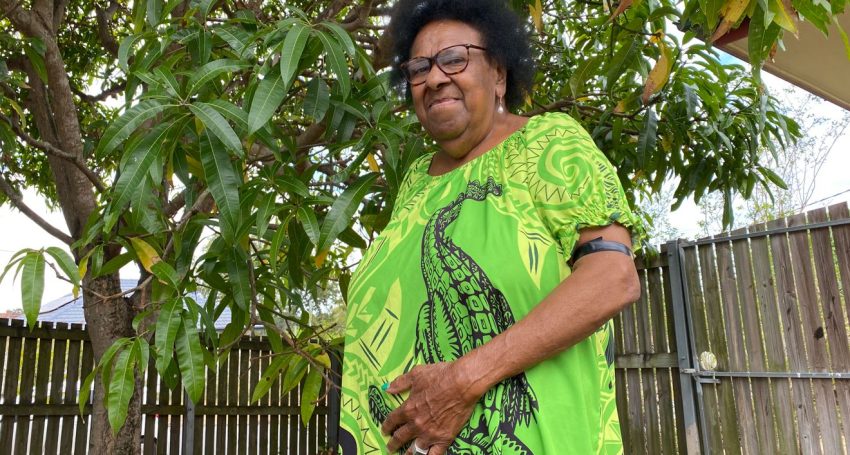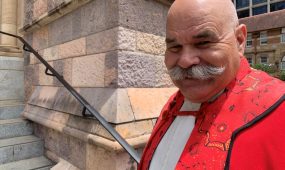Seeking nourishment, healing and a way forward after the referendum
Justice & Advocacy
“One of the greatest tragedies of the referendum outcome is that the lives of non-Indigenous Australians who voted ‘no’ will continue on the same just as their lives would have continued on the same if they had voted ‘yes’. It is the lives of First Nations peoples who will be impacted by the referendum result — and negatively so for decades to come,” says Aunty Dr Rose Elu

My people are of the sea. Since the devastating referendum result, I have spent much time reflecting by the Bay in prayer and meditation. I have been turning to God’s creation — in both land and waters — for nourishment and healing. The crocodile is one of my family’s totems, so I have also been wearing my crocodile dress to remind me of this to help keep me strong during this time.
Advertisement
I remember saying to someone at church the morning after referendum day, “This is the first time in my life I don’t have an immediate response — the first time I don’t have any words.”
I am still in mourning over the referendum result, which had only 39.94 per cent of Australians voting “yes” and Queensland’s majority percentage being the lowest at only 31.79 per cent. This dismal result has tested and challenged my faith.
For over five years, non-Indigenous Australians were invited through the Uluru Statement from the Heart to “walk with us with us in a movement of the Australian people for a better future.”
The Uluru Statement from the Heart’s invitation was unifying. However, most Australians and all states bar one refused this invitation.
One of the greatest tragedies of the referendum outcome is that the lives of non-Indigenous Australians who voted “no” will continue on the same just as their lives would have continued on the same if they had voted “yes”. It is the lives of First Nations peoples who will be impacted by the referendum result — and negatively so for decades to come.
Advertisement
This gracious invitation was about building on the healing momentum of the overwhelmingly successful 1967 referendum and closing the significant health and life expectancy gap between First Nations peoples and non-Indigenous Australians.
I have been wondering to what extent my Anglican brothers and sisters are aligning their faith with the Christian values of truthfulness, compassion and respect, as well as with the willingness to listen and learn.
I acknowledge all those who advocated for the “yes” vote, both individuals and organisations. I especially thank and acknowledge Bishop Daniel Abot from Toowoomba and The Rev’d Rebecca King from Christ Church, Yeronga. They stood faithfully alongside Aboriginal and Torres Strait Islander peoples in the lead up to the referendum, despite the significant trauma they and their congregations and families are experiencing due to the civil war in Sudan. I will always remember Daniel’s and Rebecca’s courage and steadfastness.
I would also like to thank the Queensland Community Alliance, which our Diocese is a member of through the Social Responsibilities Committee and The Parishes of Logan and Mt Gravatt. The Alliance members worked tirelessly this year to educate our community about the importance of the “yes” vote. I am convinced that if it were not for the Queensland Community Alliance’s work, that the Queensland majority percentage would have had a 2 in front of it instead of a 3.
I have to ask, when and how are we going to come together so we can be reconciled? We must find an effective and honest way forward together.





